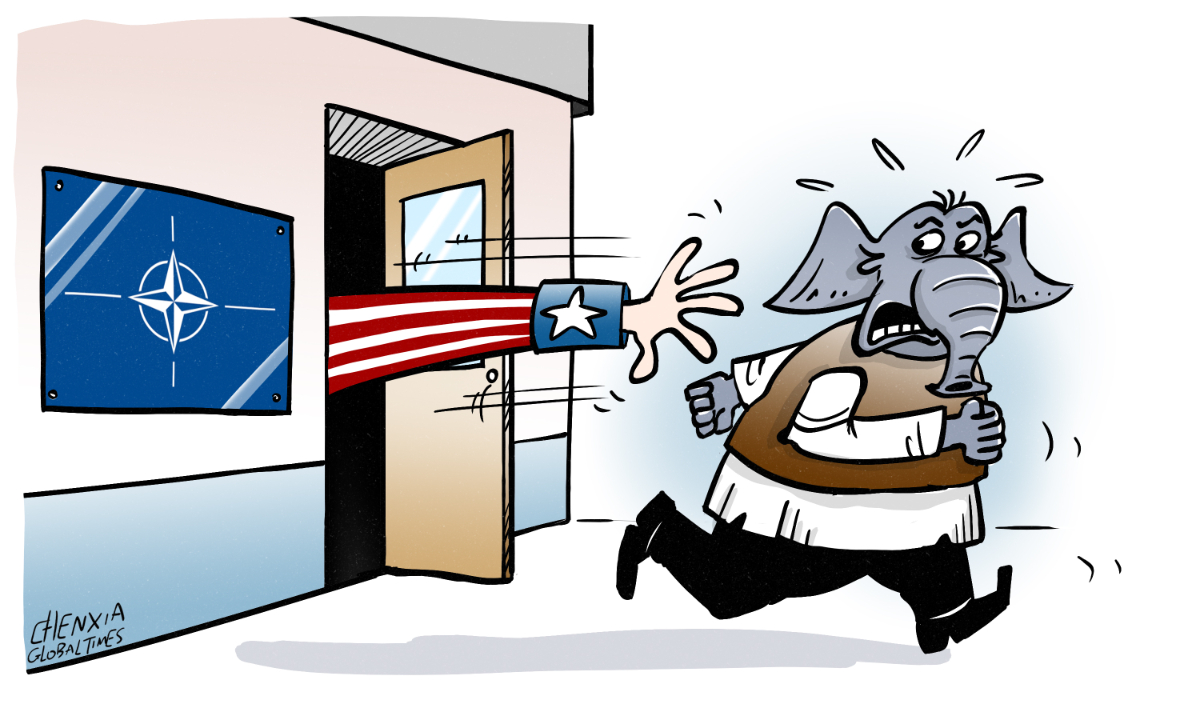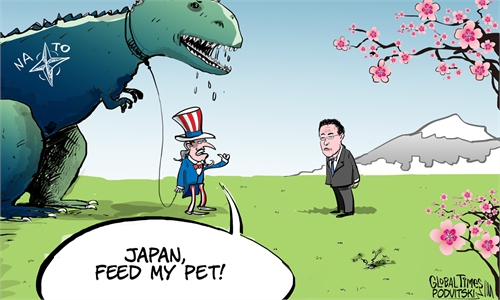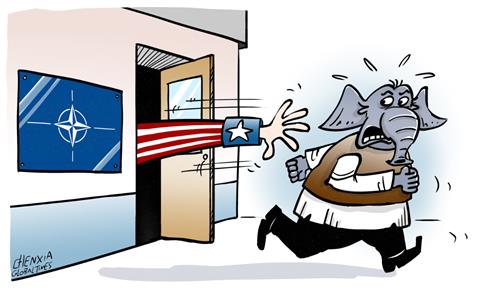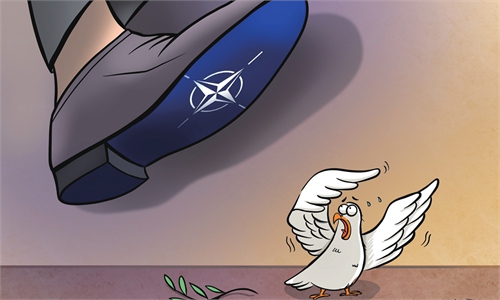NATO+ exposes US impatience with India’s independent policy and NATO's malevolent expansion ambitions

Illustration: Chen Xia/Global Times
A major problem that the North Atlantic Treaty Organization, or NATO, faced was keeping up the façade of being a North Atlantic military organization. It has largely failed at the task.
The organization is responsible for millions of deaths around the globe, and it has brought the world to the brink of nuclear war on multiple occasions. A prevailing view holds that once the Soviet Union fell, the ostensible purpose of NATO (to combat the Soviet "threat" - real or imagined) ceased to exist, and NATO should have disbanded.
As long as the USSR existed, the West and NATO could be kept in check. The Soviet Union presented a bulwark of peace to the savage alliance led by the Americans. As soon as the Soviet Union collapsed in 1991, NATO and its members went off on an international homicidal rampage. Bosnia and Herzegovina in 1992, Serbia and Kosovo in 1999, Afghanistan in 2001, Iraq in 2003, Libya and Syria in 2011, Ukraine since even before 2014…with who knows what else is to come.
And this is not even counting NATO's eastward expansion. When the Soviet Union collapsed, the Americans promised that NATO would not expand "one inch to the East." Mikhail Gorbachev should have known better than to trust the word of the West. Russia's key fault, should one ask Americans, is that it committed the cardinal sin of keeping its country too close to NATO member states.
Today, the façade of being confined to the North Atlantic is no longer tenable. The US already considers the entire globe its backyard. Why should NATO, a US-led alliance, be any different?
NATO Plus is an extension of NATO and an excuse to bring in US' cronies outside the North Atlantic: Australia, New Zealand, Japan, Israel, and South Korea. This is basically an attempt to globalize NATO, similar to the "major non-NATO ally" designation of the US regime.
The latest attempt to test the waters of de-facto NATO expansion comes from the US regime's "House Select Committee on the Strategic Competition between the United States and the Chinese Communist Party," a lazily named cabal controlled by US weapons manufacturers.
Late last month, the committee recommended that NATO Plus be strengthened to include India.
The aim of this move is apparently to "boost global defence cooperation" (code for increased weapons sales and profits) and win the "strategic competition with the Chinese Communist Party" (code for initiating war with China and blaming China for it).
For years, the US has been trying to get India on its side, with barely any major success. India has a long record of strategic non-alignment on paper and multi-alignment based on national interest in practice. This has by now become the envy of developing nations across the globe and an irritant to the US, which abhors strategic independence from any major country.
A key objective of the US regime is to exploit differences between China and its neighbors with whom it has boundary disputes. India is an obvious target.
The Philippines is another. Already a US treaty ally, it is also embroiled in maritime disputes with China over areas and islands in the South China Sea. So far, both countries have acted in a mature (i.e. non-Western) manner and avoided their differences from turning into violent disputes. Such peaceful behavior troubles the US, which would prefer both nations to be at each other's throats. Recently, the defense ministers of the Philippines, Japan, Australia, and the US participated in their first-ever defense ministerial talks involving the four countries.
Could the US regime's efforts to get India to join NATO Plus succeed? The committee that suggested it has little power, so the recommendation could simply be a way of testing the waters and keeping China on its toes. India's attempts at maintaining its strategic independence, such as its refusal to condemn Russia for a war in Ukraine that NATO initiated, make Washington insecure. It is not used to nations making up their own minds.
India is unlikely to take this bonkers proposal seriously, especially one that is transparently intended as a geopolitical "feeler" without any detail on how it would work. Moreover, India also has its military relationship with Russia to consider, not to mention that this is the same alliance whose members keep selling weapons to Pakistan, a "major non-NATO ally" of the US.
Yet the move exposes the US' impatience with India's independent foreign policy. Lacking an official statement from NATO or its leader, the US, India is wisely keeping quiet and continuing its policy of keeping out of US-China fights (i.e. US aggression on China) as long as its own interests are not involved.
The author is an Indian commentator who writes about China, India, the US and global issues. opinion@globaltimes.com.cn



